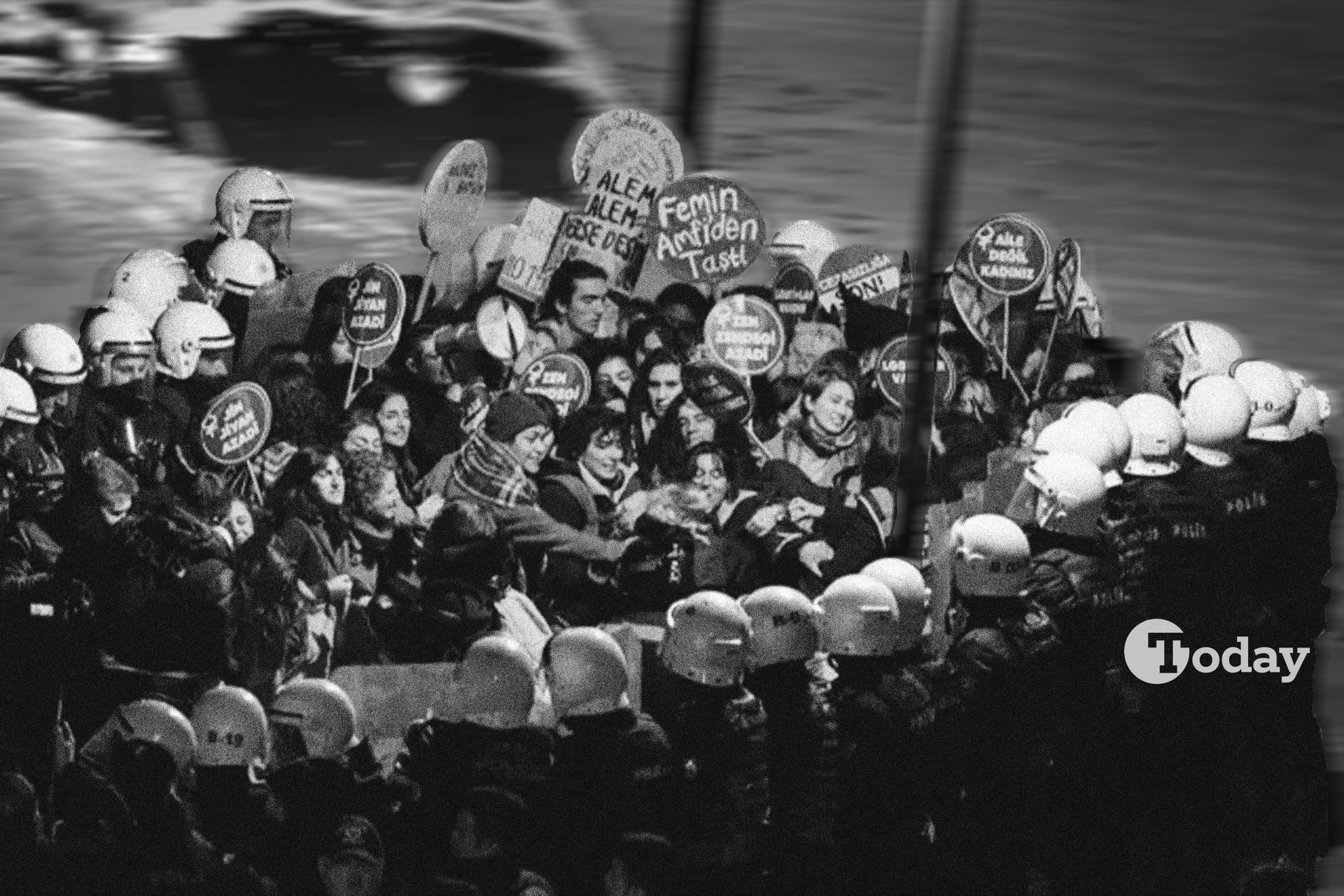
Nov. 25 is globally recognized as the International Day for the Elimination of Violence Against Women, a day dedicated to raising awareness about gender-based violence and advocating for women's rights.
In 2024, women across Türkiye mobilized on this significant day, organizing protests and events across numerous cities despite facing restrictions and bans on public gatherings.
These demonstrations were a collective response to ongoing violence and femicides, aiming to demand the effective implementation of laws and to call for governmental action to protect women's rights and lives.
Women rights' protests remains a hot political topic in Türkiye as the government deems the protestors as marjinal political groups. Despite the government circles acknowledge that current legal implementations should be improved, the harsh political stance of women rights' groups against the state institution draws ire in parts of Turkish society.
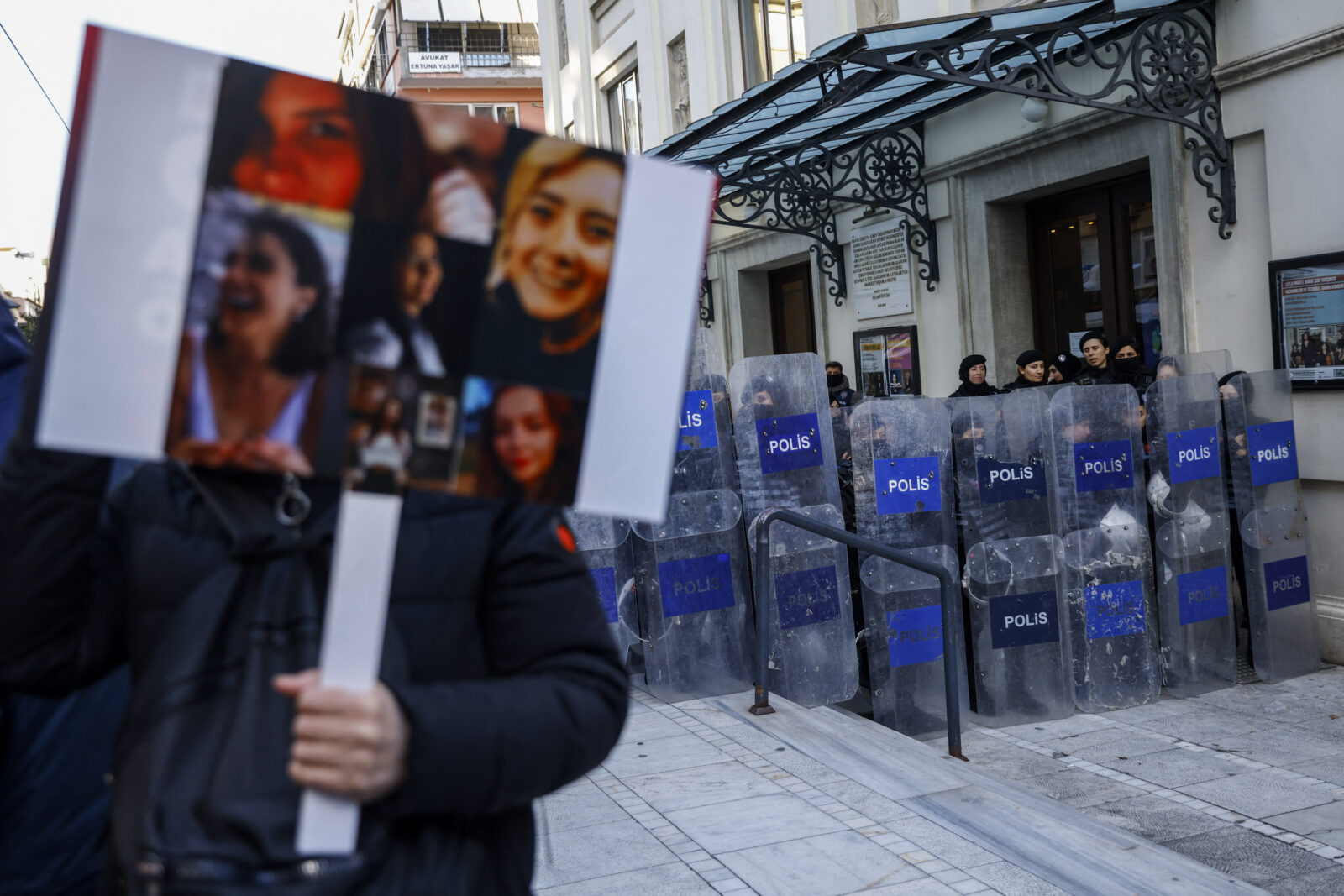
In anticipation of the planned demonstrations on Nov. 25, the Istanbul Governor's Office announced a ban on all protests and events in the Beyoglu district for Nov. 25–26, citing security concerns and potential disruptions.
The official statement claimed that Beyoglu is a central area with historical sites, foreign consulates, and high tourist activity, making it unsuitable for mass gatherings. Authorities expressed fears of "provocative incidents" and "public order disturbances" that could arise from the protests.
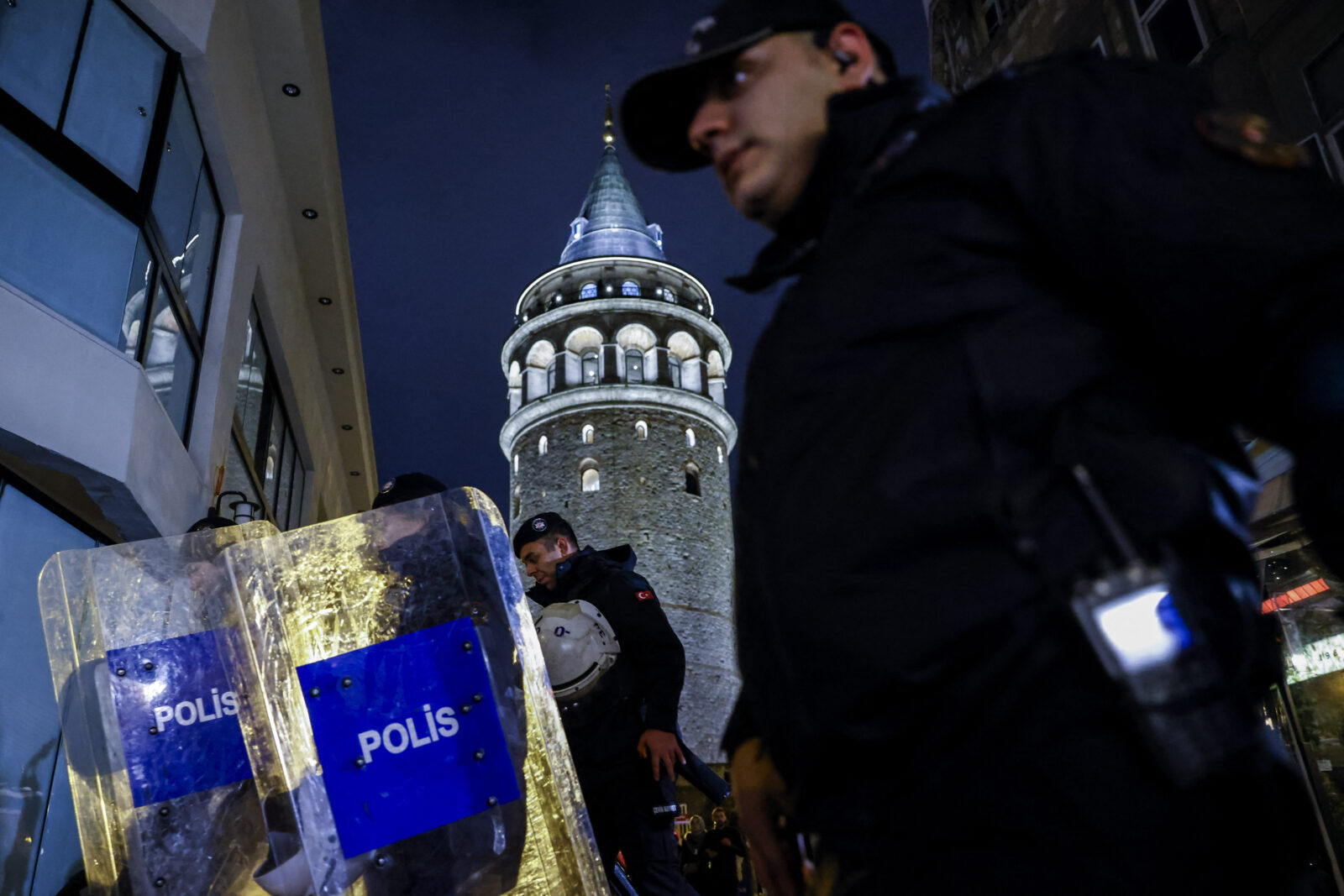
As part of the restrictions, key metro stations and streets leading to Taksim Square and Istiklal Avenue were closed to pedestrian and vehicular traffic. Metro Istanbul announced that starting from 3 p.m. on Nov. 25, several stations—including Halici, Sishane, Taksim, Osmanbey, and Sisli/Mecidiyekoy—would be closed until further notice. Tram services on certain lines were also suspended to prevent large gatherings.
Despite these measures, women's rights groups remained determined to proceed with their planned demonstrations. Organizations criticized the bans as unlawful and an infringement on their rights to peaceful assembly.
Amnesty International urged Turkish authorities to lift the protest ban, emphasizing the importance of allowing citizens to exercise their fundamental freedoms.
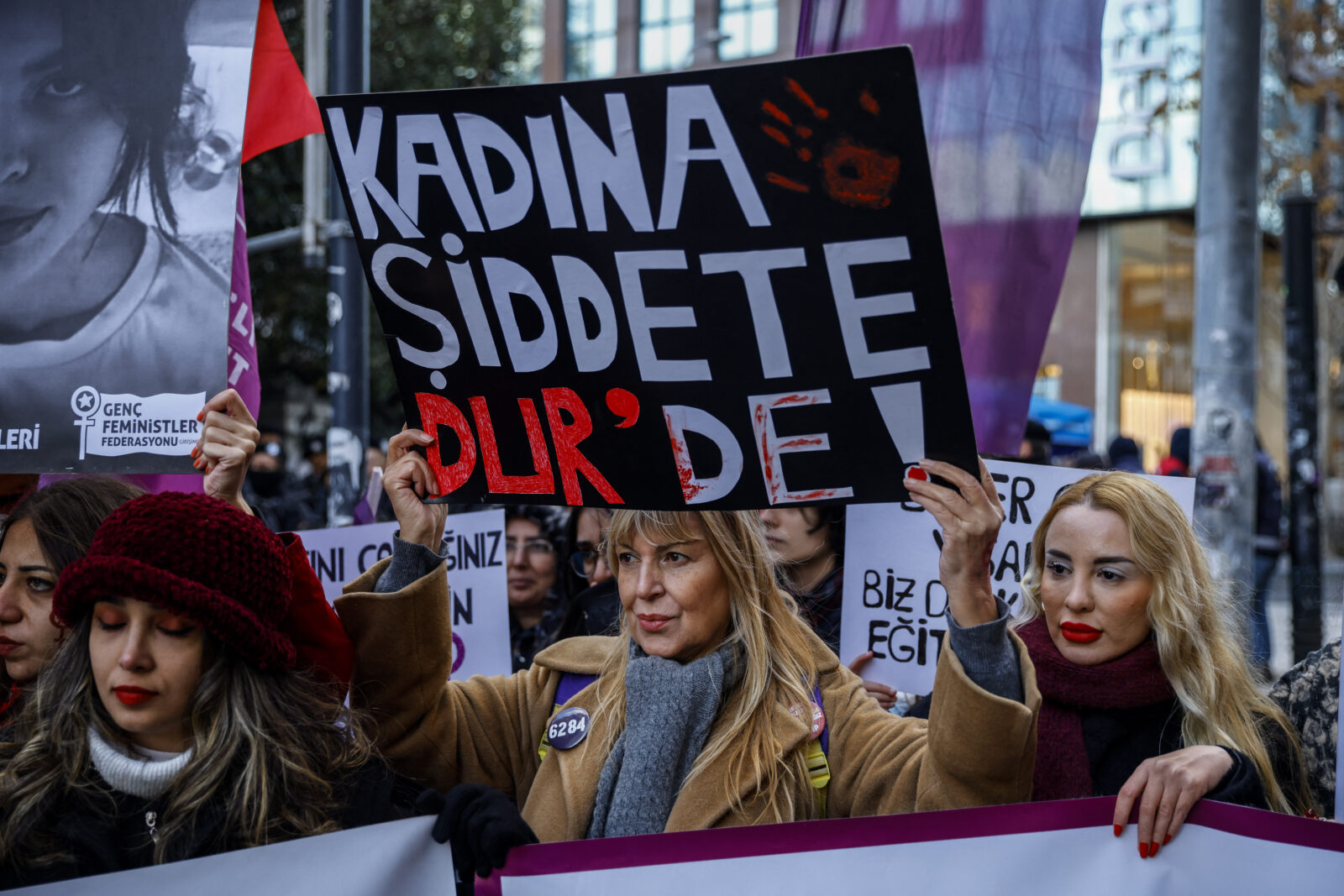
Despite the restrictions, women across Türkiye held protests and marches in numerous cities, demonstrating solidarity and demanding action against gender-based violence.
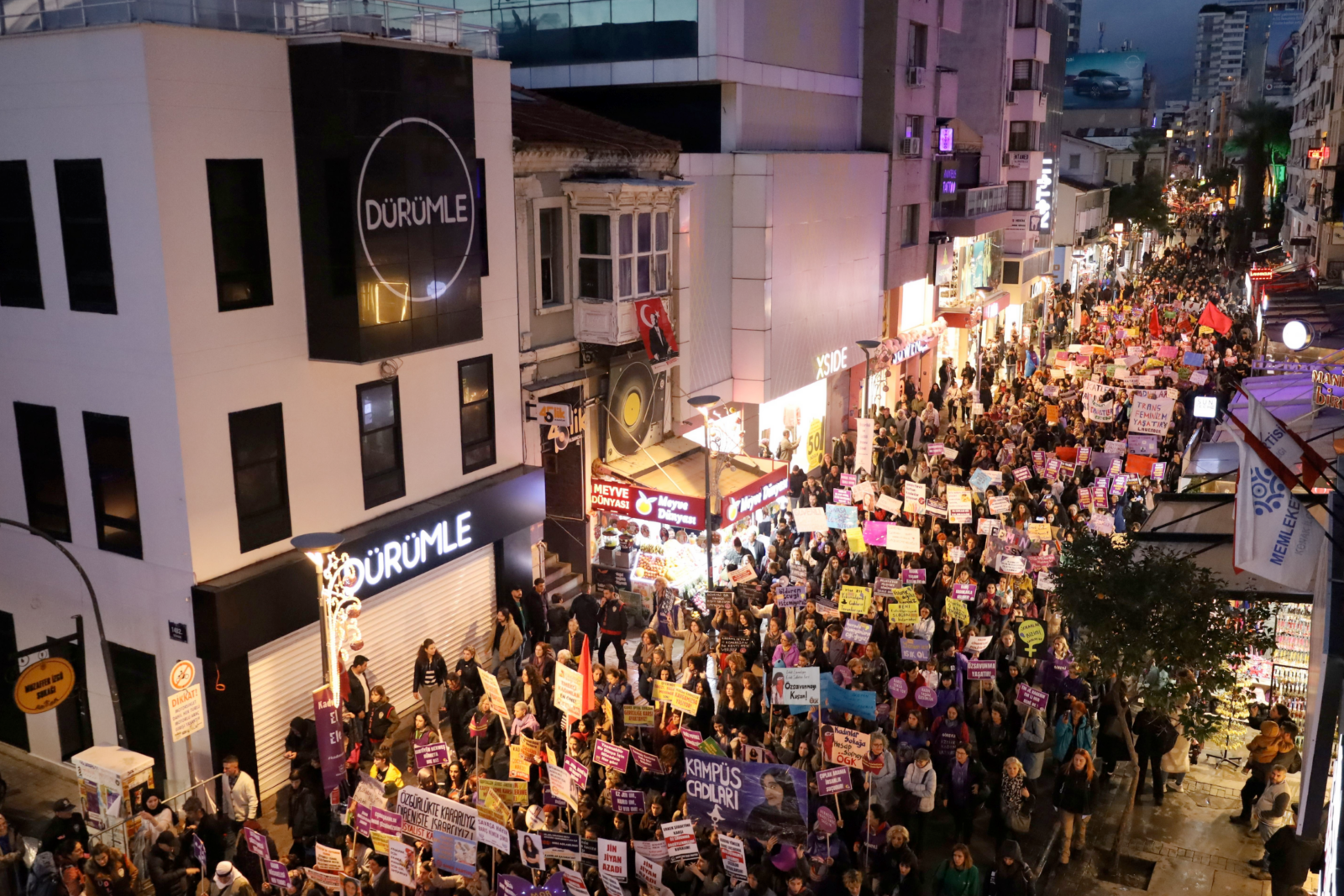
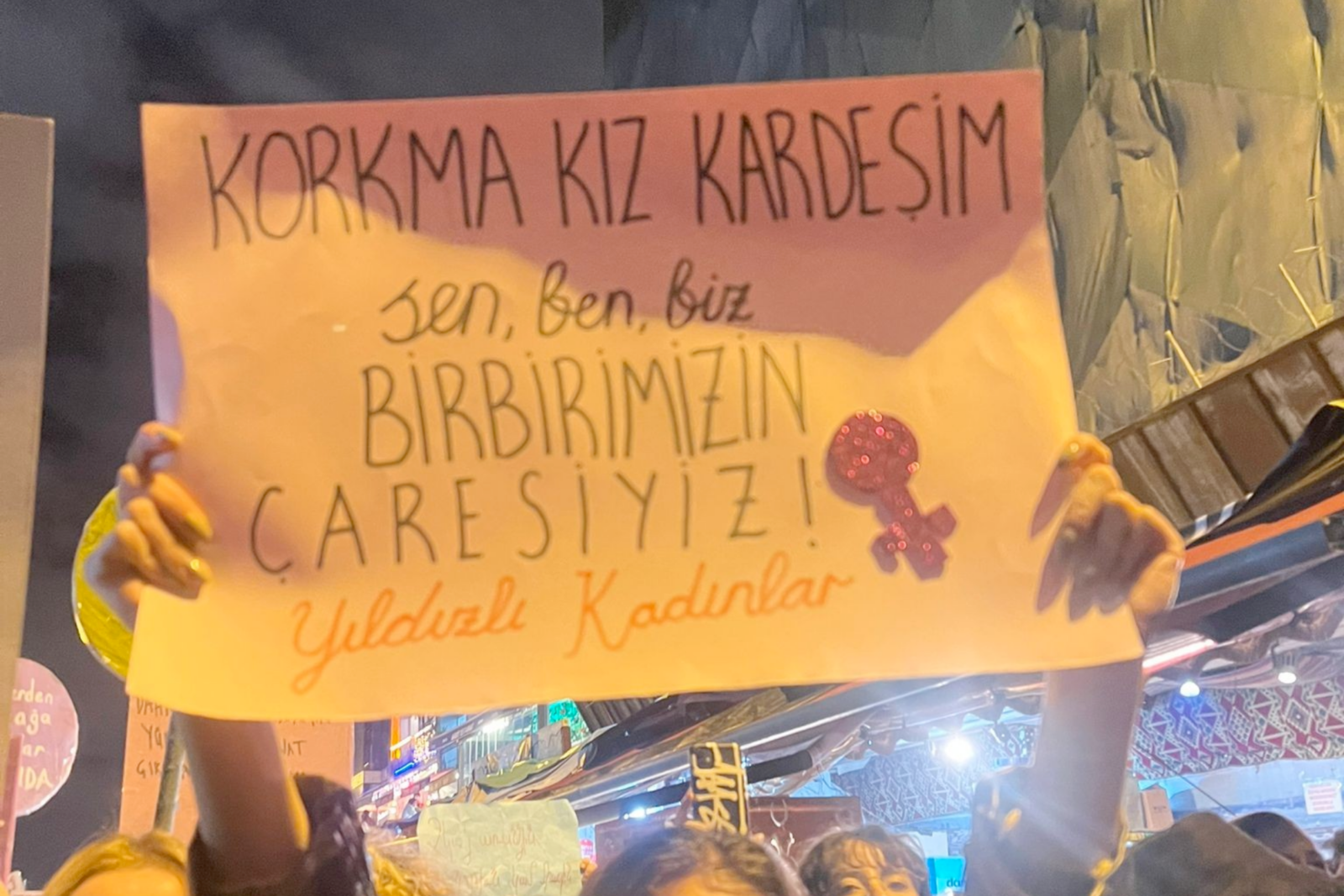

In several cities, including Istanbul and Ankara, protests faced heavy police interventions. In Istanbul, women attempting to gather at Taksim Tunel were met with extensive police barricades and were prevented from accessing the area. Police closed off streets and conducted identity checks, allowing only residents and tourists to pass.
Despite the bans, groups of women tried to proceed with their planned demonstrations. Clashes ensued as police attempted to disperse the protesters.
According to the 25 November Women's Platform, 169 people were detained during the demonstrations in Istanbul, with 162 later released. Seven individuals remained in custody on charges of resisting police, and foreign nationals were transferred to immigration authorities.
Our seven friends who were detained yesterday have been referred to court. We will continue to wait in front of Caglayan Courthouse for our friends who will be brought here. Our struggle cannot be hindered; release those detained on November 25 immediately!
25 November Women's Platform stated on November 26
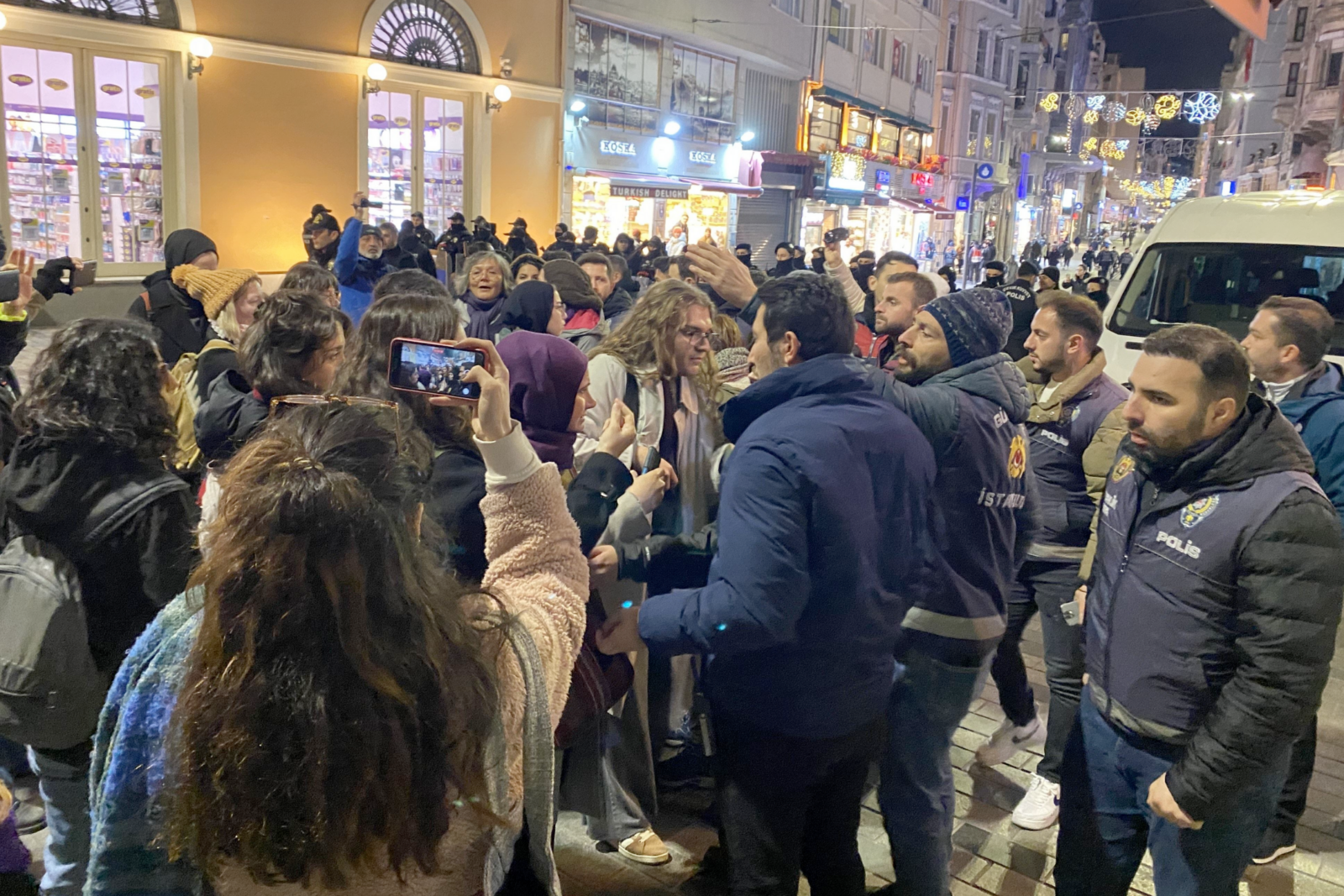
Reports indicated that some women were subjected to force during detentions. Videos and images circulated showing police officers using physical force to detain protesters, and women being held in handcuffs inside police vehicles. Journalists attempting to cover the events allegedly faced interference, with some being pushed back or prevented from recording.
In Ankara, similar scenes unfolded as police blocked the women's march toward Sakarya Square. A scuffle broke out, but the women persisted, staging a sit-in protest and chanting slogans until they were allowed to proceed.
Women's rights organizations condemned the police actions, stating that the excessive use of force and detentions were violations of their rights to peaceful assembly and free expression. They demanded the immediate release of all detained individuals and called for accountability of the authorities involved in suppressing the protests.
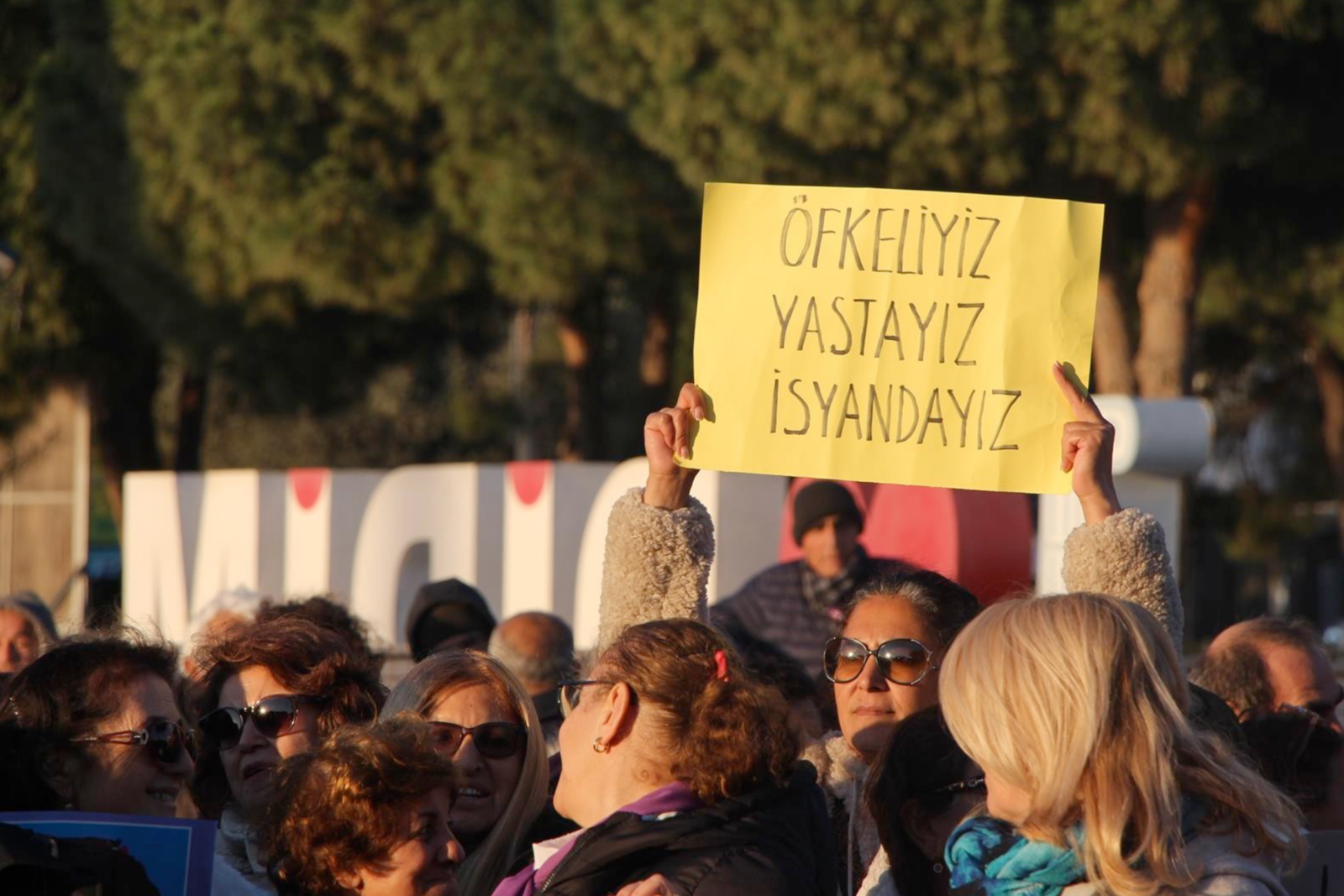
The demonstrations across Türkiye brought attention to several critical issues concerning violence against women and the government's response.
Activists pointed to the alarming increase in femicides and gender-based violence.
Organizations like the We Will Stop Femicides Platform emphasized that many of these murders occurred due to the victims' attempts to make autonomous decisions about their lives, such as seeking a divorce or refusing relationships.
The overall trend showed a disturbing rise in femicides over recent years.
Activists stressed that these figures represent not just numbers but individual lives lost due to systemic failures.
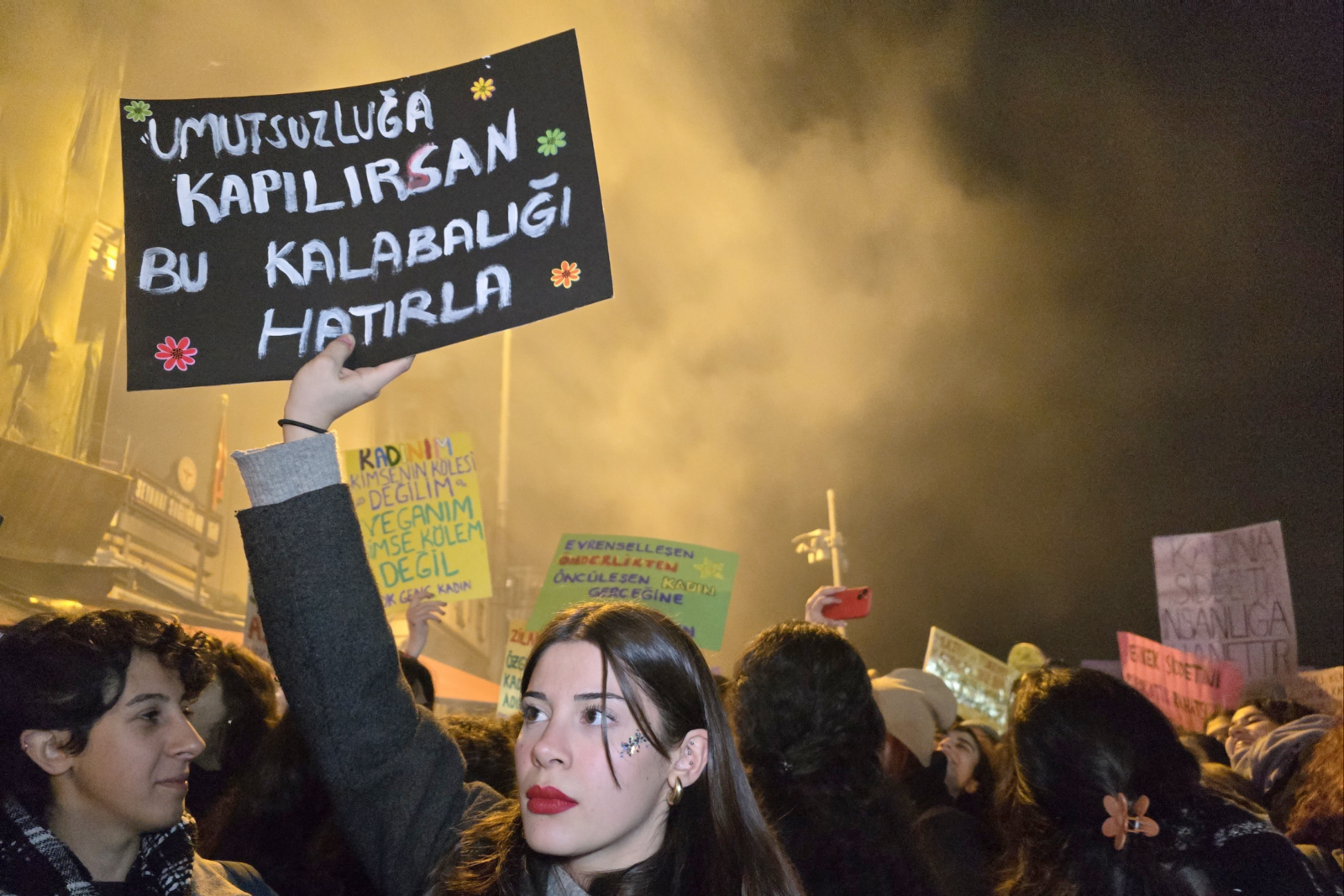
Protesters demanded the effective enforcement of Law No. 6284, which provides protection for women against violence. They criticized the government for failing to implement the law adequately, leading to situations where protective measures were insufficient or ignored.
Cases were highlighted where women were murdered despite having restraining orders or other legal protections in place. Activists argued that without proper enforcement, laws on paper do little to protect women in reality.
Another significant issue raised was the culture of impunity surrounding violence against women. Protesters criticized lenient sentences for perpetrators and the lack of accountability that allows abusers to avoid adequate punishment.
They demanded that the judicial system take a firmer stance against offenders, ensuring that sentences are deterrent and that justice is served for victims. The call was for systemic change to address not only individual cases but also the societal attitudes that enable such violence.
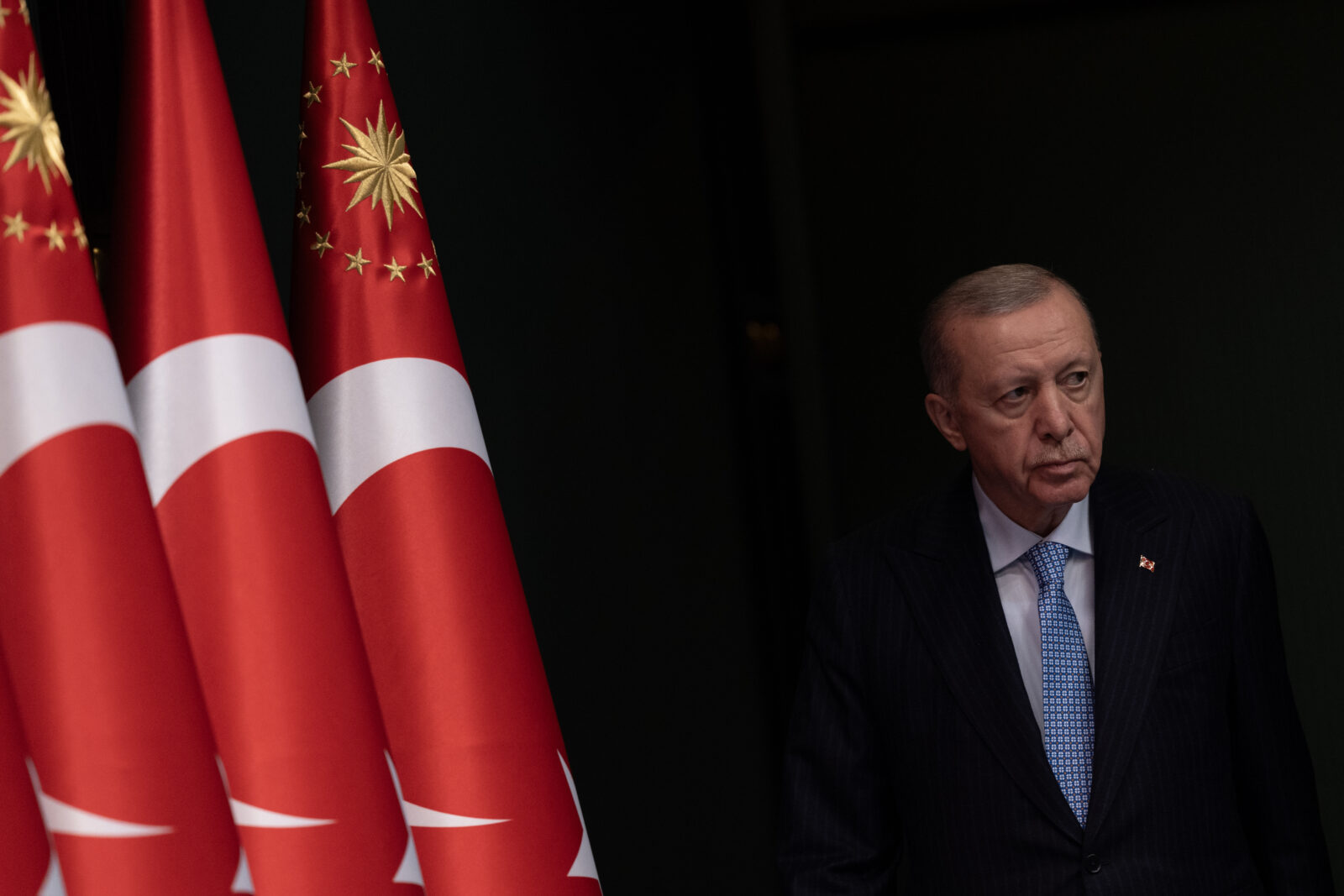
On the same day as the protests, President Recep Tayyip Erdogan spoke at an event commemorating the International Day for the Elimination of Violence Against Women.
While President Erdogan acknowledged that violence against women is unacceptable and called it a betrayal of humanity, critics noted that he gave limited attention to domestic concerns regarding the rising violence against women in Türkiye.
Similarly, President of Religious Affairs Ali Erbas released a message addressing the International Day for the Elimination of Violence Against Women.
Women's rights organizations and activists criticized officials for not adequately addressing the crisis of violence against women within the country.
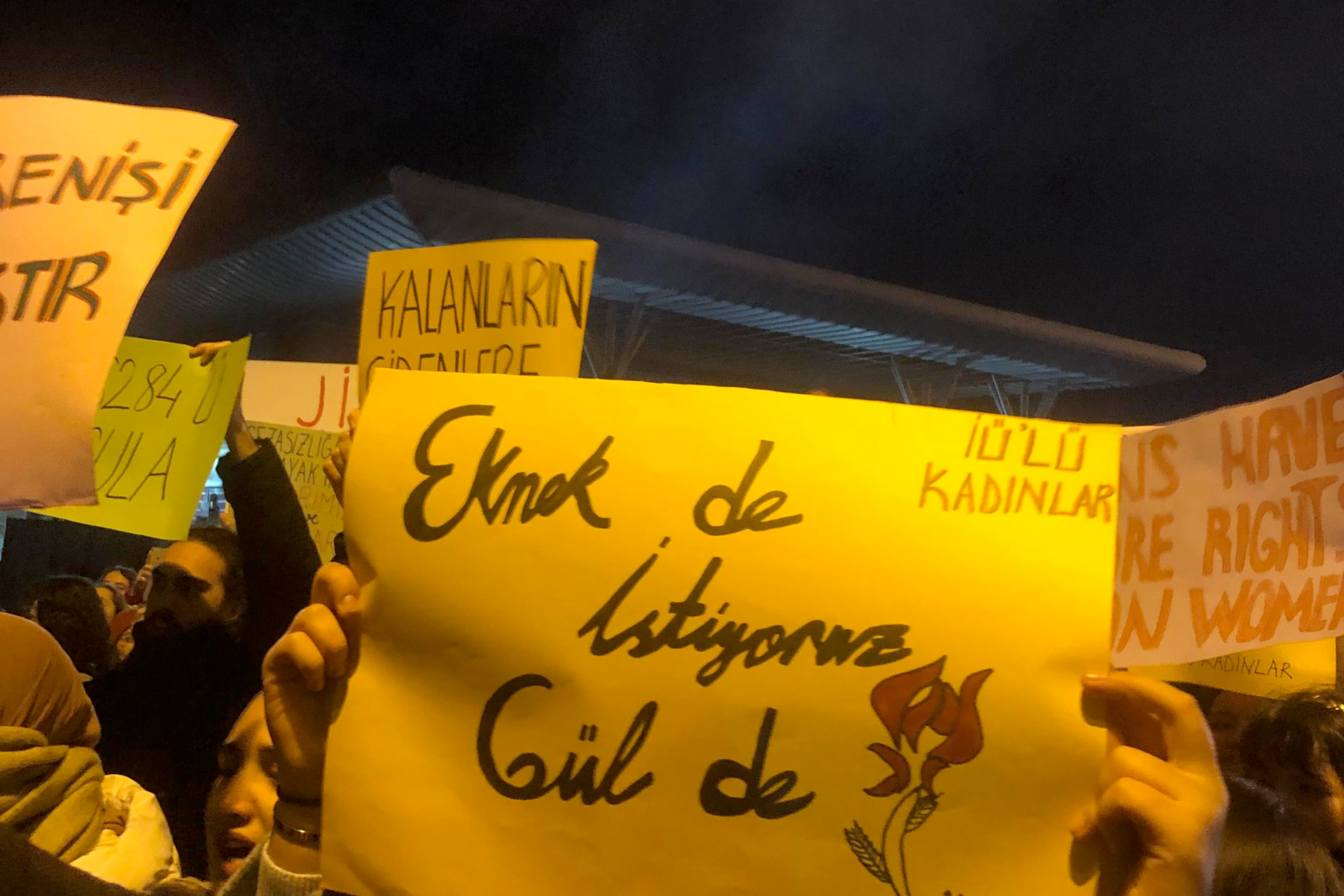
Women in Türkiye's Nov. 25 protests were part of a broader global movement to combat violence against women.
Driving the news: Across Europe, thousands marched to raise their voices against gender-based violence, demanding stronger legal protections and societal change.
By the numbers:
The big picture: The European Union has taken significant steps to address gender-based violence.
The global solidarity shown on Nov. 25 emphasizes that the fight against gender-based violence is a shared struggle transcending borders.
Activists worldwide continue to call on governments to prioritize the eradication of violence against women. Through continued advocacy and international cooperation, there is hope for significant progress in protecting women's rights and lives.